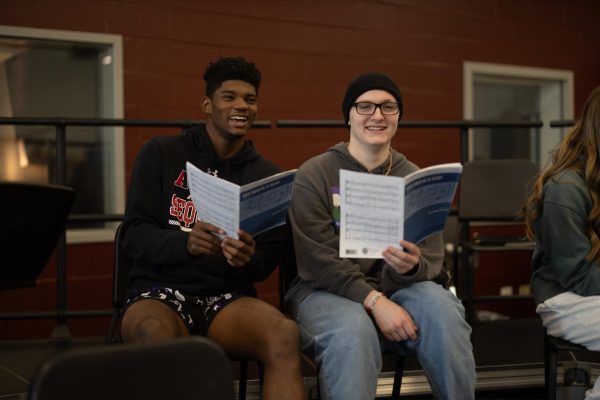Losing Our Humanities
Even with STEM fields growing in prominence, the humanities are still valid career choices.
In recent years, there has been a noticeable shift in the types of career fields young people are pursuing. With an increasingly technological society, more high school and university students are going into STEM fields: science, technology, engineering and math. According to Emsi, Illinois universities alone have seen a 36 percent increase in student graduation with STEM degrees from 2010 to 2016, whereas the number of those graduating with humanities degrees – which includes the arts, English and social studies – decreased by 10 percent in the same period. Fewer teenagers in America are viewing humanities careers as viable options today than they have in years past, but there are benefits to pursuing them nonetheless.
Regardless of what field a student intends to explore, learning some aspect of the humanities can provide a unique and holistic perspective on complex issues. History teacher, Charlie Trout, explains why it is important even for STEM students to have some grasp of the humanities.
“I think that [learning about the humanities] makes sense on face value, that you learn more about [the] society around you,” Trout said. “You still operate in this society. We are social beings, so it makes sense that that would benefit people.”
Senior Zoë Semersky, despite intending to go into a STEM field, still finds benefit in learning about subjects beyond those pertaining to her science oriented major.
“The liberal arts education is important because it makes you more well rounded and therefore, a more interesting scientist,” Semersky said. “Then, instead of just focusing purely on science, math, things like that, [you] really go in depth on what you’re trying to discover or talk about because of the humanities aspects.”
For many students, societal pressures to make money in their future occupations tend to steer them away from humanities-based career options. A report from the Department of Education states that within the first four years of obtaining their degree, STEM students are more likely to get and keep a job, as well as get a higher annual salary.
Senior Colin Conway discusses how and why he decided to go into music education as opposed to something more firmly rooted in technology.
“I was in a position where I wanted to just go for money, but I wanted to switch because I realized that I actually like what I’m doing,” Conway said. “I think people should go more for passion because they’d enjoy it more in the future. I found what my home is and it’s music.”
Society tends to put a strong emphasis on working to make money. However, even though the humanities do not encompass the most economically lucrative occupations, pursuing one’s passions is important for teenagers to consider as they move towards their future beyond high I school.












